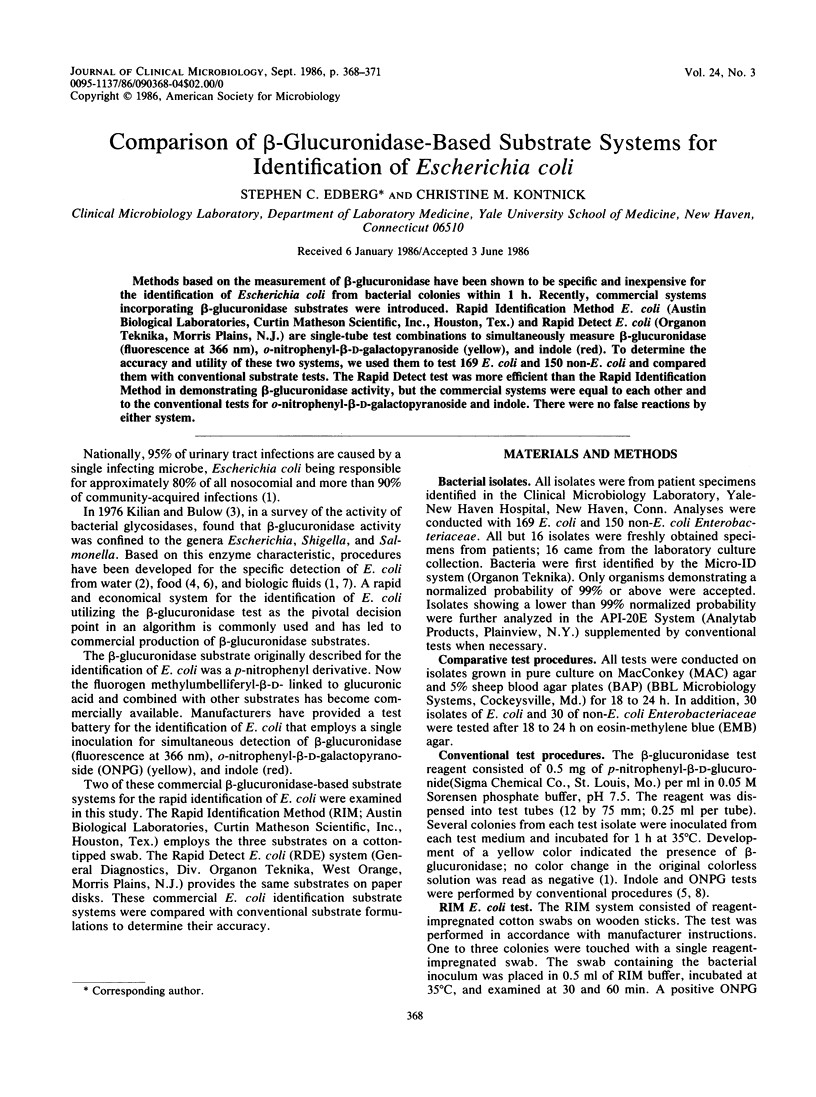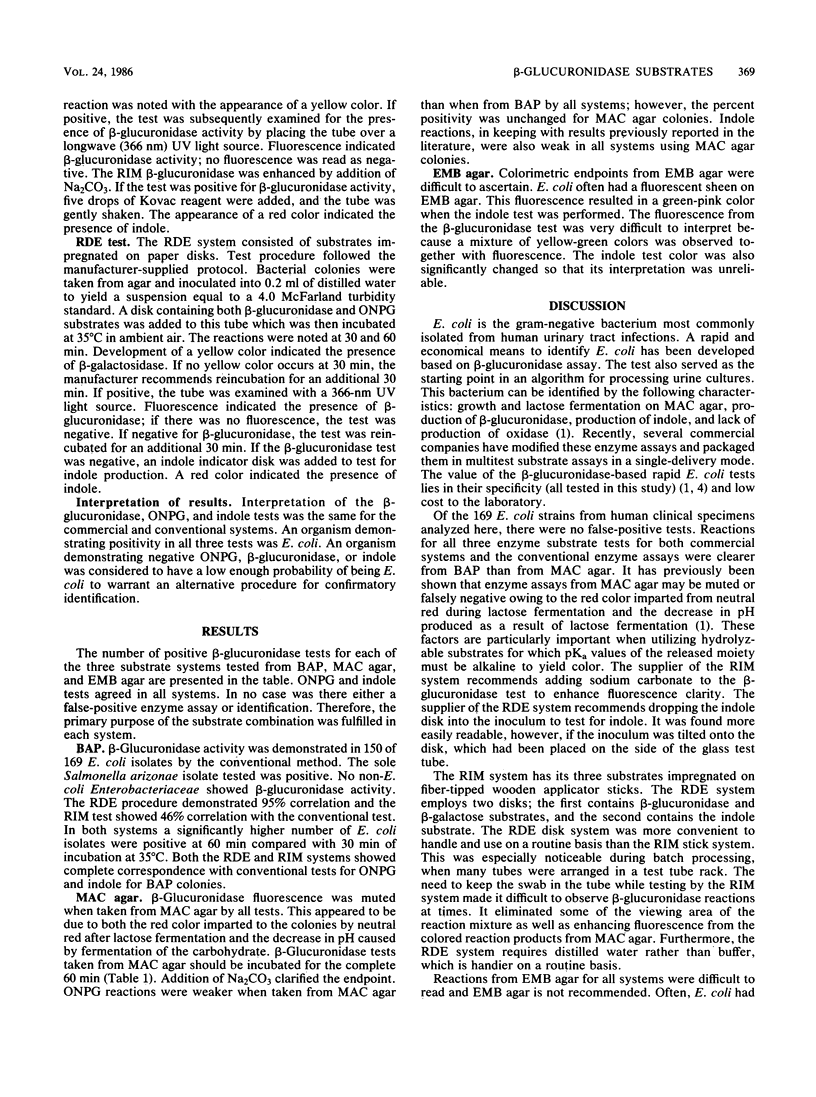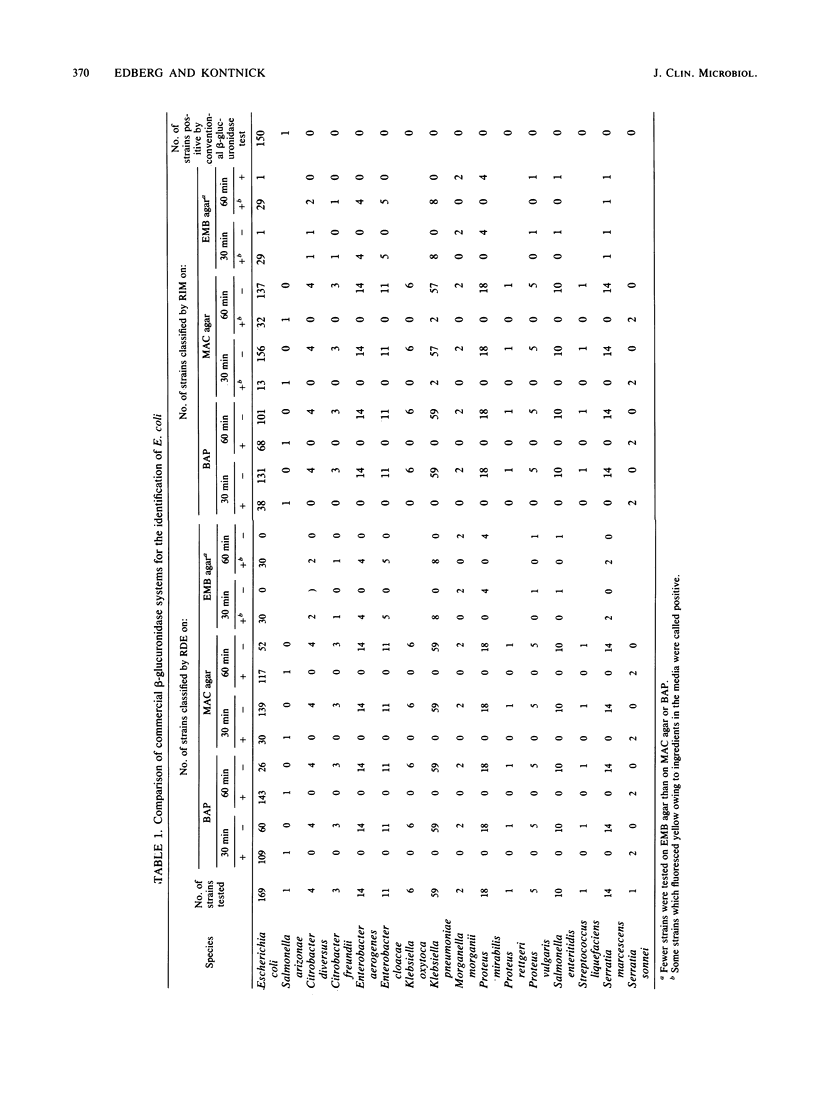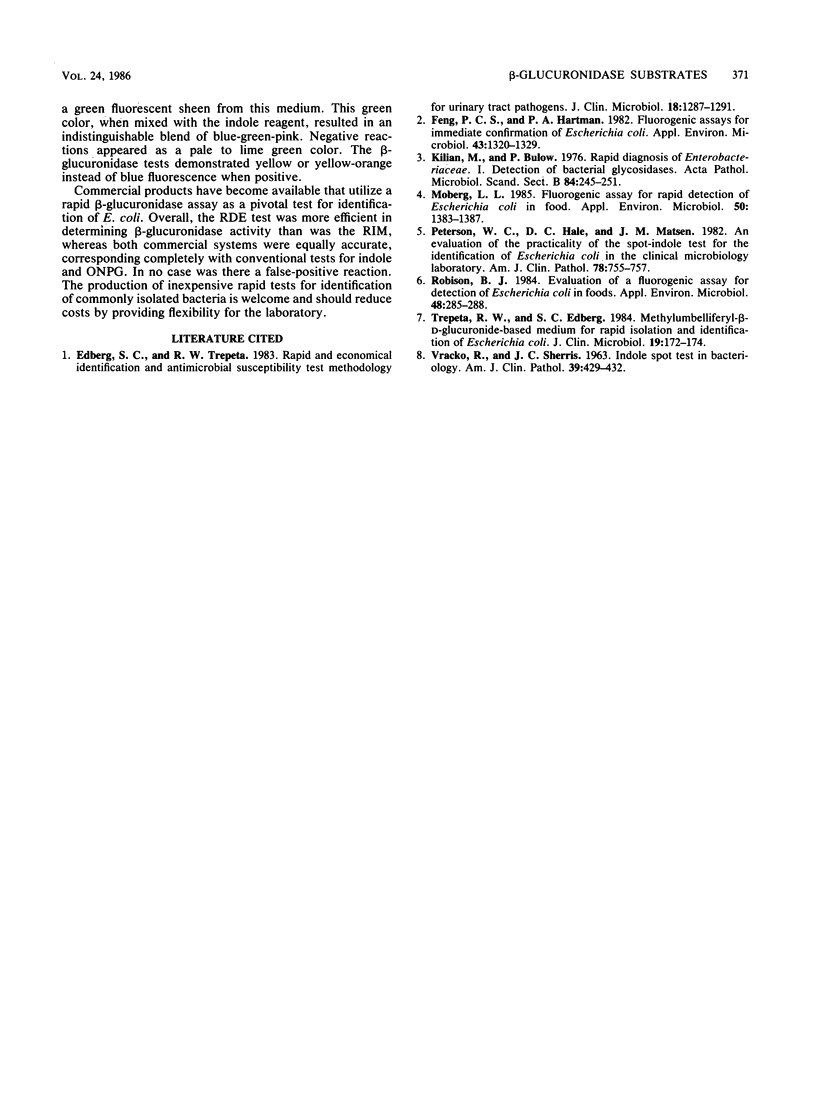Abstract
Methods based on the measurement of beta-glucuronidase have been shown to be specific and inexpensive for the identification of Escherichia coli from bacterial colonies within 1 h. Recently, commercial systems incorporating beta-glucuronidase substrates were introduced. Rapid Identification Method E. coli (Austin Biological Laboratories, Curtin Matheson Scientific, Inc., Houston, Tex.) and Rapid Detect E. coli (Organon Teknika, Morris Plains, N.J.) are single-tube test combinations to simultaneously measure beta-glucuronidase (fluorescence at 366 nm), o-nitrophenyl-beta-D-galactopyranoside (yellow), and indole (red). To determine the accuracy and utility of these two systems, we used them to test 169 E. coli and 150 non-E. coli and compared them with conventional substrate tests. The Rapid Detect test was more efficient than the Rapid Identification Method in demonstrating beta-glucuronidase activity, but the commercial systems were equal to each other and to the conventional tests for o-nitrophenyl-beta-D-galactopyranoside and indole. There were no false reactions by either system.
Full text
PDF



Selected References
These references are in PubMed. This may not be the complete list of references from this article.
- Edberg S. C., Trepeta R. W. Rapid and economical identification and antimicrobial susceptibility test methodology for urinary tract pathogens. J Clin Microbiol. 1983 Dec;18(6):1287–1291. doi: 10.1128/jcm.18.6.1287-1291.1983. [DOI] [PMC free article] [PubMed] [Google Scholar]
- Feng P. C., Hartman P. A. Fluorogenic assays for immediate confirmation of Escherichia coli. Appl Environ Microbiol. 1982 Jun;43(6):1320–1329. doi: 10.1128/aem.43.6.1320-1329.1982. [DOI] [PMC free article] [PubMed] [Google Scholar]
- Kilian M., Bülow P. Rapid diagnosis of Enterobacteriaceae. I. Detection of bacterial glycosidases. Acta Pathol Microbiol Scand B. 1976 Oct;84B(5):245–251. doi: 10.1111/j.1699-0463.1976.tb01933.x. [DOI] [PubMed] [Google Scholar]
- Moberg L. J. Fluorogenic assay for rapid detection of Escherichia coli in food. Appl Environ Microbiol. 1985 Dec;50(6):1383–1387. doi: 10.1128/aem.50.6.1383-1387.1985. [DOI] [PMC free article] [PubMed] [Google Scholar]
- Peterson W. C., Hale D. C., Matsen J. M. An evaluation of the practicality of the spot-indole test for the identification of Escherichia coli in the clinical microbiology laboratory. Am J Clin Pathol. 1982 Nov;78(5):755–758. doi: 10.1093/ajcp/78.5.755. [DOI] [PubMed] [Google Scholar]
- Robison B. J. Evaluation of a fluorogenic assay for detection of Escherichia coli in foods. Appl Environ Microbiol. 1984 Aug;48(2):285–288. doi: 10.1128/aem.48.2.285-288.1984. [DOI] [PMC free article] [PubMed] [Google Scholar]
- Trepeta R. W., Edberg S. C. Methylumbelliferyl-beta-D-glucuronide-based medium for rapid isolation and identification of Escherichia coli. J Clin Microbiol. 1984 Feb;19(2):172–174. doi: 10.1128/jcm.19.2.172-174.1984. [DOI] [PMC free article] [PubMed] [Google Scholar]


